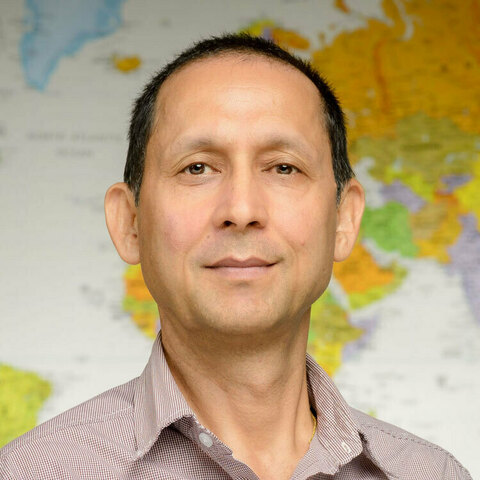
Email: sgautam2@nd.edu
Phone: (574) 631-4277
Shriniwas Gautam
Evidence and Learning Scientist
Areas of expertise interest: Agriculture, Agriculture Value Chains, Poverty and Hunger Issues, Monitoring and Evaluations
Shri Gautam, an agricultural economist by training, has been an integral member of the Pulte Institute's Evidence and Learning Division since 2021. At Pulte Institute, he leads and supports evaluations of development and humanitarian projects and collaborates with researchers and implementors in the global development space specifically focused on programming and policy-relevant impact evaluations. His impact evaluation expertise includes RCT, quasi-experimental designs, and performance evaluations on development and humanitarian projects across various topics.
Between 2014 and 2021, Shri held monitoring and evaluation roles for different global development projects at international agriculture R4D institutions like the International Maize and Wheat Improvement Center (CIMMYT) and the World Vegetable Center. From 2011 to 2014, his work centered around digital divide issues as part of a rural broadband expansion project in Missouri. Before selection as a Fulbright Scholar in 2003, he served as a government officer (agricultural economist) in Nepal, actively contributing to various agriculture development projects.
Shri is committed to bridging research and policy gaps to drive positive change to address global development challenges. He disseminates his findings through various channels and has published in numerous peer-reviewed journals, including the American Journal of Agricultural Economics (AJAE). His research covers many topics, including poverty, food security, sustainability, agricultural value chain analysis, efficiency and disparities in healthcare services, and the use of digital tools for development interventions.
Shri holds a Ph. D. in agricultural economics with a graduate certificate in Geographic Information Systems (GIS) from the University of Missouri–Columbia. He also has a master’s in Agricultural Economics from Michigan State University, a master’s in sociology, and a bachelor’s in agriculture from Tribhuvan University in Nepal.